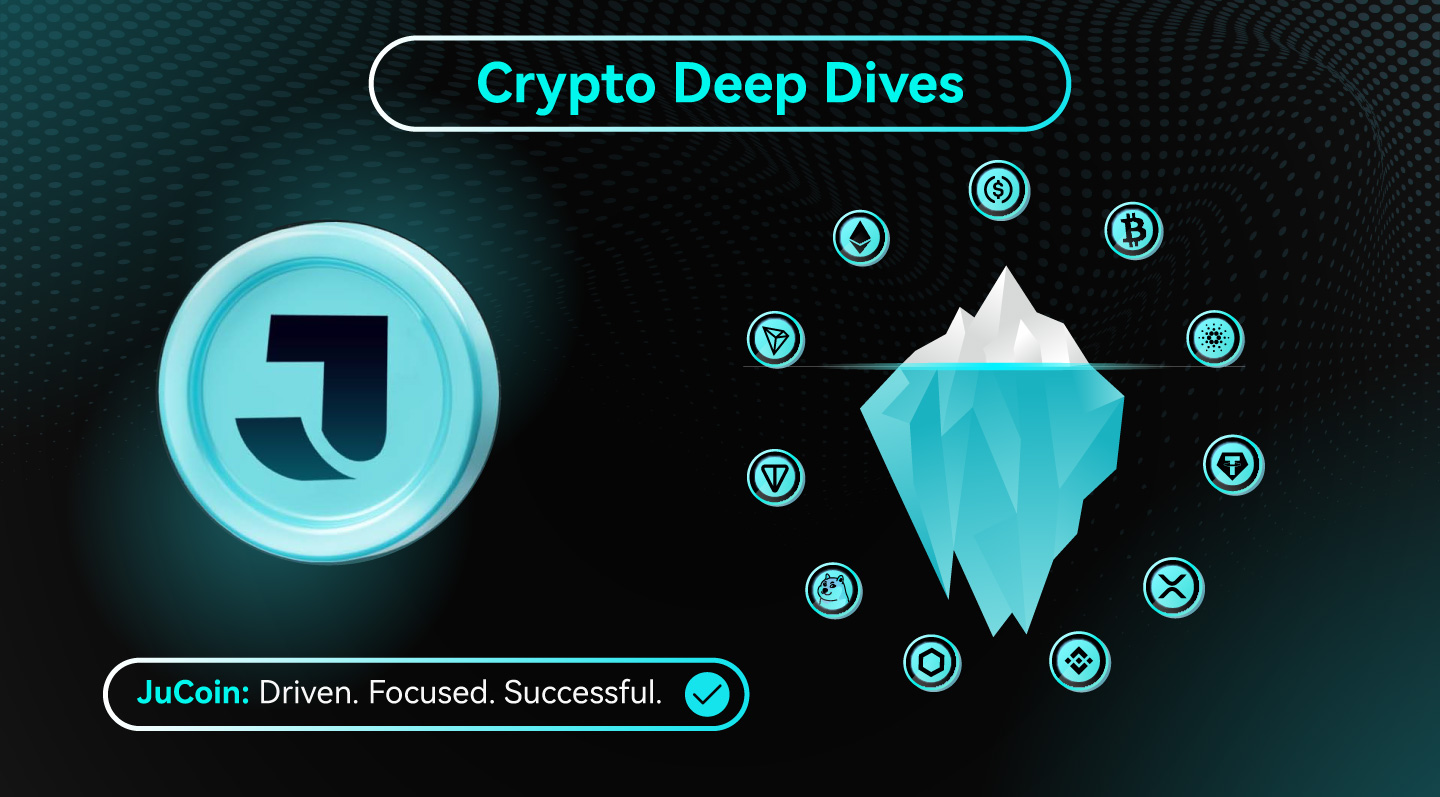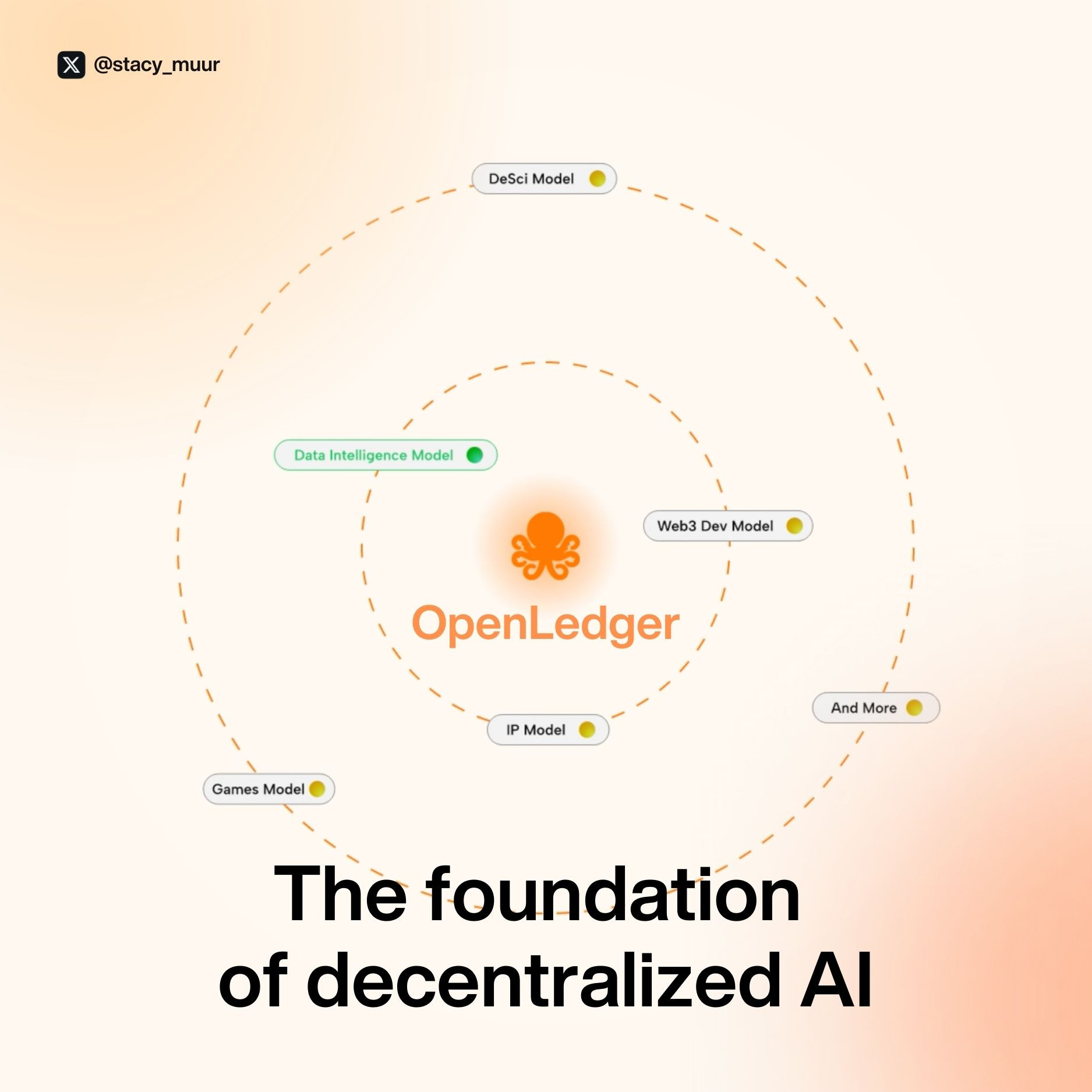
Key Takeaways
- OpenLedger provides decentralized infrastructure combining blockchain and AI, emphasizing transparency, fairness, and accurate attribution for contributions in AI development.
- The platform’s strategic partnership with Spheron Foundation significantly enhances scalability, performance, and decentralized deployment capabilities, creating a robust ecosystem for decentralized AI.
- OpenLoRA technology efficiently enables decentralized deployment of language models, fostering modular architecture, transparent data attribution, and automated reward distribution.
- OpenLedger’s current testnet phase introduces a points-based reward system, future $OPEN token incentives, and extensive community engagement to ensure sustainable growth.
- OpenLedger strategically positions itself as a pivotal infrastructure solution, reshaping the decentralized AI market and empowering community-driven innovation across Web3.
The intersection of artificial intelligence (AI) and blockchain technology is driving new possibilities for decentralized systems. At the forefront of this convergence stands OpenLedger, an innovative protocol dedicated to creating decentralized AI infrastructure that promotes transparency, verifiability, and equitable reward distribution. By integrating blockchain-based attribution with advanced AI deployment capabilities, OpenLedger aims to build a revolutionary environment for developing, deploying, and governing AI models in a decentralized manner.
This Crypto Deep Dives article explores OpenLedger’s technology stack, strategic partnerships, recent developments, including the Decentralized AI Platform launch, and its crucial role within the broader decentralized AI and blockchain ecosystem.
What Is OpenLedger?
OpenLedger is an advanced decentralized AI platform that harnesses blockchain technology to ensure transparency and fairness in AI model development and deployment. Unlike traditional centralized AI solutions, OpenLedger emphasizes verifiable attribution for contributions such as datasets, computational resources, and machine learning models. Its primary goal is to create a transparent, community-driven ecosystem where all participants receive fair compensation for their contributions, thereby democratizing the benefits of AI technology and promoting open, decentralized governance.
This approach directly addresses some of the key challenges faced by the AI community today, such as data monopolization, opaque attribution practices, and centralized control. OpenLedger’s transparent and modular architecture ensures fairness in contribution recognition, fostering a community-oriented ecosystem that prioritizes decentralized decision-making and incentivization.

Technological Innovations & Infrastructure
At its core, OpenLedger features several key technological innovations designed to deliver high performance, flexibility, and fairness. A central component of its architecture is OpenLoRA, a specialized solution designed specifically for the decentralized deployment of large-scale language models. OpenLoRA allows developers and contributors to efficiently deploy AI models across a decentralized network, ensuring optimal utilization of computational resources while maintaining full transparency and attribution accuracy.
This modular design is critical in providing transparency and flexibility. Through modularity, the platform distinctly separates data attribution, model training, and reward distribution into clearly defined components. This separation allows participants to independently verify contributions and rewards, ensuring accountability and reducing trust dependencies. Automated smart contracts handle reward distribution based on predefined conditions, significantly streamlining compensation and reducing disputes.
Further enhancing its capabilities, OpenLedger integrates advanced blockchain technology directly with AI workflows. This integration enables secure, verifiable record-keeping of data provenance, model contributions, and computational tasks. Contributors benefit from a decentralized reputation system, ensuring recognition and appropriate incentives for their involvement. Additionally, by utilizing decentralized data storage and transparent ledger technologies, OpenLedger creates an environment resistant to manipulation and censorship, vital for ensuring long-term trust and sustainability within its ecosystem.

Strategic Partnership With Spheron Foundation
Recently, OpenLedger announced a significant strategic partnership with the Spheron Foundation, aimed at substantially enhancing scalability and deployment capabilities. Spheron specializes in decentralized infrastructure solutions, providing key technologies for scalable storage and decentralized application hosting. Through this collaboration, OpenLedger can significantly expand its decentralized AI deployment capabilities, ensuring more reliable, scalable, and efficient infrastructure support.
This partnership underlines OpenLedger’s strategic commitment to scalability and performance, crucial for widespread adoption and usability. Leveraging Spheron’s infrastructure expertise allows OpenLedger to support high-throughput decentralized AI computations, advanced deployments, and large-scale community engagement. Such strategic collaborations illustrate OpenLedger’s proactive approach in addressing both technological and infrastructural challenges within the decentralized AI space.
OpenLedger’s Decentralized AI Platform Launch & Recent Developments
Currently, OpenLedger is undergoing its testnet phase, marking a critical step toward fully realizing its decentralized AI vision. During this phase, the platform has introduced a points-based reward system for early community members, contributors, and validators. This initiative is intended to incentivize early adoption, encourage extensive community testing, and build a robust foundation of engaged stakeholders. Early participants accrue points that will eventually convert into the native token, OPEN, planned for future release. This approach directly aligns community incentives with the long-term success and health of the platform.
OpenLedger’s testnet phase is more than a technical milestone; it represents a critical opportunity for real-world user feedback and community-driven improvements. To foster community engagement, the platform hosts regular AMA sessions, technical workshops, and interactive events, strengthening community relationships and providing transparency about the project’s developments and future plans.
Market Impact & Ecosystem Role
OpenLedger’s entry into the decentralized AI market comes at a crucial time when the AI community increasingly demands transparency, fairness, and decentralized governance. The market is ripe for disruption by platforms that effectively combine blockchain’s transparency with AI’s analytical power, positioning OpenLedger as an innovative and timely solution. Its emphasis on fairness, transparent attribution, and community-driven governance resonates strongly with developers, enterprises, and users wary of centralized control and opaque decision-making.
Within the broader blockchain ecosystem, OpenLedger plays a strategic role in bridging two transformative technologies—blockchain and AI. This bridging is vital, given that traditional AI development often suffers from issues related to trust, centralization, and data privacy. By establishing a transparent, fair, and decentralized model for AI contributions, the network becomes a critical infrastructure provider in Web3, attracting contributors and partners from diverse sectors, including enterprise AI, decentralized finance (DeFi), and Web3-native communities.
Future Prospects: Shaping Decentralized AI
Looking forward, its roadmap promises continued innovation and ecosystem expansion. The planned introduction of the native OPEN token will further solidify community engagement, allowing holders to participate actively in governance decisions and benefit directly from the platform’s growth. Additionally, OpenLedger intends to further enhance its AI deployment solutions, improving OpenLoRA’s efficiency and compatibility with diverse AI frameworks and models.
Furthermore, the integration of additional blockchain networks and collaboration with other Web3-native initiatives positions OpenLedger strategically to support cross-chain deployments and multi-network collaborations. By facilitating interoperability and providing robust decentralized AI infrastructure, OpenLedger aims to become the go-to platform for developers, researchers, and organizations dedicated to ethical, transparent, and decentralized AI solutions.
A Blueprint For Decentralized AI Innovation
OpenLedger’s ambitious vision to revolutionize AI infrastructure through blockchain integration represents a pivotal shift towards transparency, fairness, and community-driven governance in AI development. By providing a decentralized platform that rewards contributions transparently and accurately, it addresses critical issues faced by traditional AI platforms. Its strategic partnerships, technological advancements like OpenLoRA, and community-oriented initiatives position it uniquely to lead in this emerging intersection of AI and blockchain.
As the AI landscape evolves, OpenLedger offers a compelling and scalable solution for decentralized, equitable AI development, empowering communities to build innovative solutions without centralized gatekeepers. The continued development of its decentralized AI platform not only sets a new standard for fairness and transparency in AI but also significantly accelerates the broader adoption of decentralized technology across industries.





